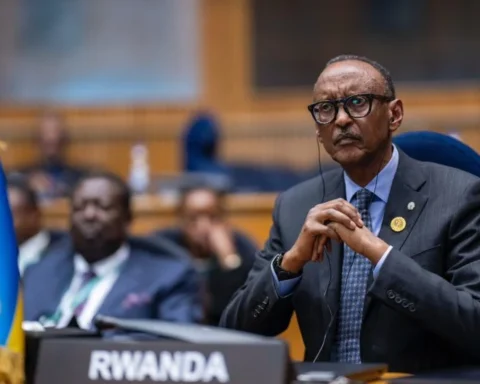Tanzania has officially announced its intention to integrate nuclear power into its national electricity mix, a historic move that signals the country’s commitment to energy modernization and climate-conscious development.
Speaking at the Nuclear Energy Innovation Summit in Kigali, Rwanda on June 30, Deputy Prime Minister and Minister of Energy, Dr. Doto Biteko, revealed that President Samia Suluhu Hassan has directed the government to begin preparations for establishing a nuclear energy programme in Tanzania.
“President Samia has instructed us to move forward. We are now taking nuclear power seriously as part of our national grid strategy,” Dr. Biteko told regional energy leaders and international partners.
Dr. Biteko’s remarks align closely with a recent decision by the World Bank, which in June 2025 ended its decades-long ban on funding nuclear energy. The announcement, covered in World Nuclear News, opens the door for financing Small Modular Reactors (SMRs) and grid modernization efforts in developing countries like Tanzania.
World Bank President Ajay Banga emphasized that energy access is a cornerstone of equitable development. The Bank’s renewed commitment will work in collaboration with the International Atomic Energy Agency (IAEA), the UN’s nuclear watchdog agency, to ensure safety and global compliance.
Why Nuclear Power?
Tanzania’s energy demands are rising, driven by rapid urbanization, industrialization, and expanding digital services. Although investments in hydropower, solar energy, and natural gas have played a major role in powering growth, these sources often fall short during peak demand or climate-related disruptions.
Nuclear power provides a stable and carbon-free solution, capable of running continuously regardless of weather conditions. The World Nuclear Association classifies nuclear as one of the safest and most efficient base-load sources globally.
Tanzania is now updating its 2013 Nuclear Technology Policy and planning to establish a national nuclear authority. This institution will regulate all aspects of nuclear science, including environmental safety, waste management, and radioactive material control.
Also Read; BRICS Leaders Call for Fairer World Order
In collaboration with the IAEA Technical Cooperation Programme, the government aims to train nuclear engineers, safety experts, and medical technicians to harness the power of nuclear beyond just electricity—such as in radiation therapy for cancer, food preservation, and agricultural productivity.
Also Read; BRICS Leaders Call for Fairer World Order
Tanzania is rich in uranium, a critical component for nuclear fuel. This positions the country for potential self-sufficiency in nuclear material, or for participation in regional fuel-sharing programs. Other African countries already pursuing nuclear programs include Egypt, South Africa, Rwanda, and Nigeria.
As laid out in the Energy in Tanzania strategy, the government views nuclear as part of a diversified portfolio—complementing renewables while ensuring long-term energy security.
The roadmap toward nuclear generation will include:
- Legal and regulatory framework establishment
- Feasibility studies for power plant sites and grid readiness
- Stakeholder consultations and public education
- Bilateral cooperation with countries that have developed SMRs like Canada and South Korea
If the program proceeds on schedule, Tanzania could become the next East African country to produce electricity from nuclear energy by the early 2030s.







